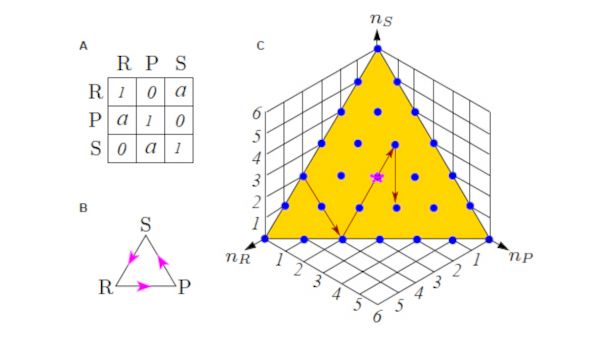How to Win Rock-Paper-Scissors, Study Shows (Really)

(Getty)
If you are about to engage in an intense - because when are they not intense - game of rock-paper-scissors with a friend or loved one, do not let them read this article.
You, however, will want to take notes.
A team of researchers from China have just released the results of the first large-scale study of the game and their conclusions on player behavior could help you win the next round.
The study, led by three researchers at China's Zhejiang University, recruited 360 undergraduate and graduate students to play a total of 300 rounds of rock-paper-scissors while their actions were recorded.
When a student won a round, the researchers found, they tended to stick with the same action (i.e. rock, paper or scissor) instead of switching to another.
When a student lost a round, they most often switched to another action, rotating in a clockwise direction, from rock to paper to scissor.

(arvix.org)
So, if you can think fast enough during each round's three-second countdown, you can anticipate your opponent's next move by whether they won, and thus would stay with the same action, or lost, and thus would switch to the next action, which you'd be able to determine by going clockwise.
The findings upend the previously held notion that rock-paper-scissors followed classical game theory, or mixed-strategy Nash equilibrium (NE), "in which every player chooses the three actions with equal probability," the study's authors write.
Instead, according to this study, those who win at rock-paper-scissor appear exhibit "collective cyclic motions" and "conditioned response."
"Our theoretical calculations reveal that this new strategy may offer higher payoffs to individual players in comparison with the NE mixed strategy, suggesting that high social efficiency is achievable through optimized conditional response," the authors write.
Translation: You can beat the pants off your opponents if you think it through properly.
The researchers say the work they did on just rock-paper-scissors could be extended in future studies to human psychology.
"Whether conditional response is a basic decision-making mechanism of the human brain or just a consequence of more fundamental neural mechanisms is a challenging question for future studies," they conclude.